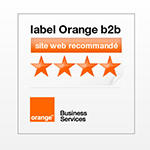Whether we like it or not, everything seems to have gone ‘social’. Social media (which has for me only little to do with media), social business (on which I merely agree with Stowe Boyd’s definition), social platforms, social commerce…
One of the latest additions to this list ‘à la Prévert’ is social customer. Our customers are now chatting online, extensively using (or not) social media, and we, benevolent companies (we are not yet social businesses, but will be very soon), are listening to them, engaging with, and, ultimately, selling them our products and services, which they will afterword comment together in social networks… This looks great, except that the social customer doesn’t exist.
Customers are still customers, regardless of how you look at them, and the fact of using new tools doesn’t mean they will buy more of your social-mediated products. Calling your customers ‘social’ is a lame attempt to say: “hey, we are a social business, notice how cool we are: we are both tagged as ‘social’. So let’s be friend, and for sure you’ll love what we are showing you”.
It is time for companies to grow up, and that rather than calling their customers ‘social’ and focusing on tools that are mostly meant for private conversations, they begin to build trusted relationships through their own channels and tools, and follow a business -not bozo- logic. Your customers deserve to be considered seriously, so does your business.
More on that in the presentation below:






I think your take on what is a ‘social’ customer is imperfect. It’s about shifting behaviour patterns and the ‘social’ adjective just serve as marker to denote a shift to changing expectations regarding interactions. Once this has become the norm, I agree that we can ditch the term – but this is far from being the case thus still serves a purpose until that time.
The job-to-be-done here is to get the customers AND businesses to the next level, and as any language construct, ‘social’ in this case just serves as a means to get to the desired outcome.
Just like ‘Social Business’ which serves in this transitory phase and will likely evolve into the collaborative enterprise, followed by quite simply ‘business’.
Keep stirring up discussion though, that is what is needed to ‘level-up’ 🙂
Hi Mark,
I understand your point, but from a customer point-of-view, does it make sense? Will he (or does he) change his expectations level or online behavior? I rather think that it is up to companies to up to the next level, and to understand that they now have to consider customers’ behavior more seriously. They now have to make better proposals.
This implies first a shift toward ‘social transaction’, then toward value co-creation, once a realistic and more balanced scene is set up. But to me the move is now on business side.
Expectations about how the customer interacts and experiences that interaction is already changing rapidly and constantly. Calling customers ‘social customers’ creates a set of expectations in the minds of company management to adapt their market approach – and even a ‘justification’ to stray from the patterns which they have been applying for the last 100-odd years. in our echo-chamber we advocate that they need to change – the ‘Social Customer’ construct just serves as a framework for developing new patterns.
Companies do need to catch up, like you imply, the ball is on their side of the court. They just need to realize that customers are now on their team, and to learn how to play together and what needs to be done to put the ball into the hoop to win the game. If the word ‘social’ will help them see that we’re wearing shirts of the same colour, then I’m completely happy with it!
I agree with Mark – kinda. The thing is, I’m sick of the term because it makes social media, marketing, PR people think they have all the answers to solve problems that having nothing to do with shouting and spamming, which is what they are generally noted for.
Therefore, I agree with you too.
The bottom line for me is that this is merely another form of engagement. Since it’s by far the least proven form of engagement, maybe we should refer to customers as “phone” customers or “email” customers. Seriously. The social thing is merely a revolution for a small set of marketing people that needed a spark to generate some income for themselves; never mind that there has been no correlation to high level business outcomes (standing on its own). go ahead, implement “social”. If the rest of your company is not inclined to participate in the experience, so much for your investment. It simply can’t be about any one thing.
It’s time to get serious and get down to the “business” of your “customer”. There, I said it.
BTW, any social media people that want to pick on me can do so at my website which should be linked under my name. Or spam me on Twitter @mikeboysen 🙂
or simply talk about understanding the job-to-be-done and how to go about meeting desired outcomes. And only then talk about social, collaboration, whateverication can be used as a tool to get there.
OK. That was the shorter version of what I was trying to say, and you’ve seen me say it before.
Pingback: The Social CRM Oxymoron
Pingback: Not Everyone is a Social Customer | Social Learning Blog